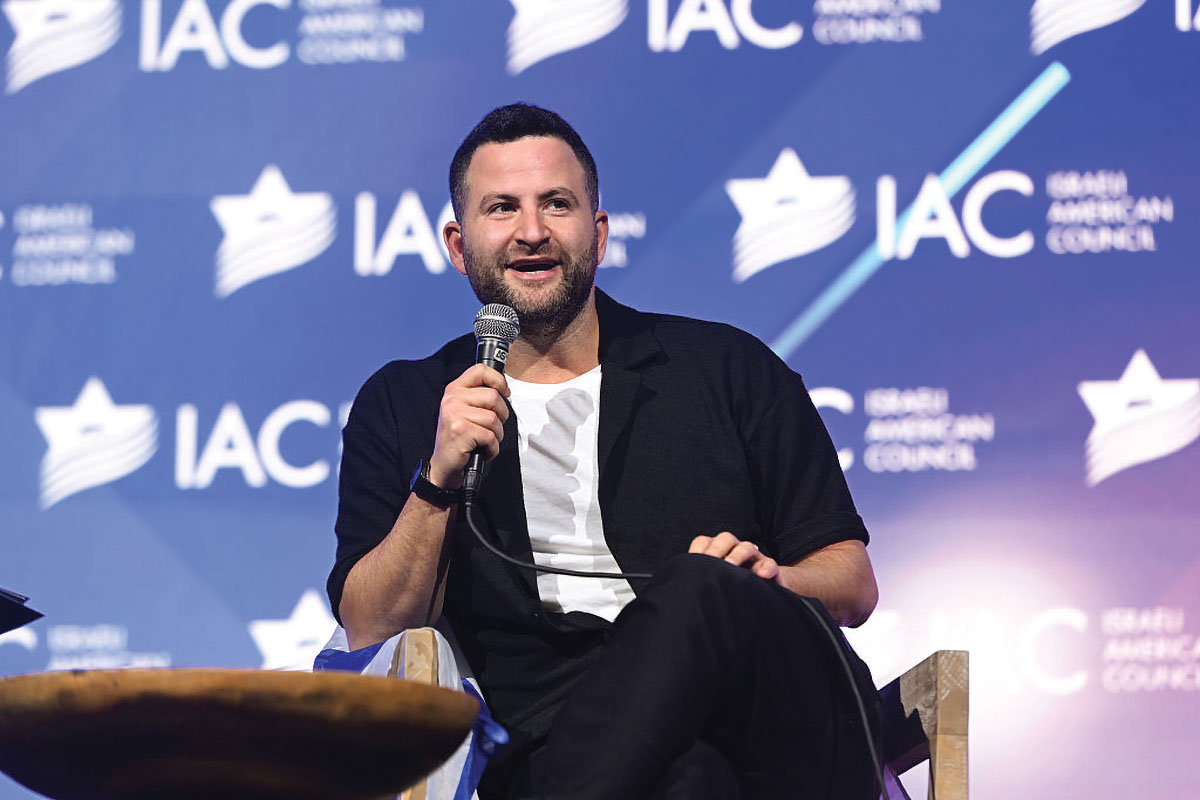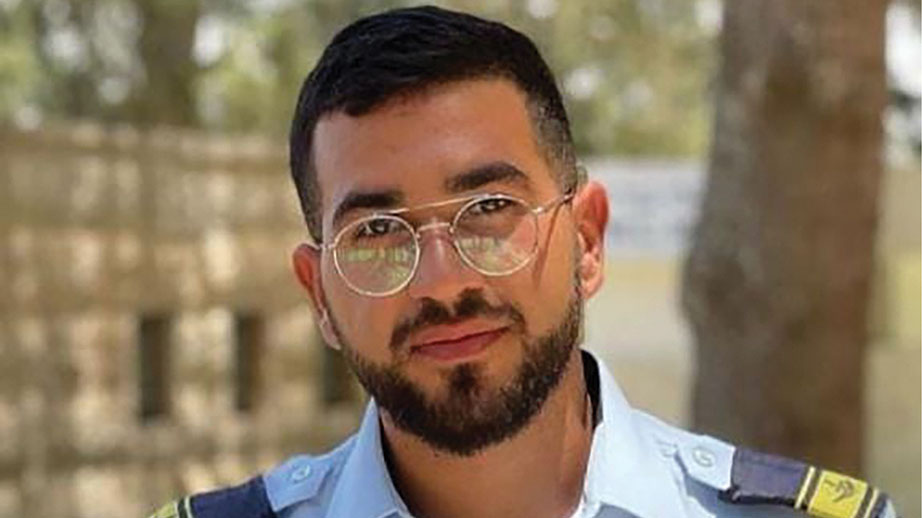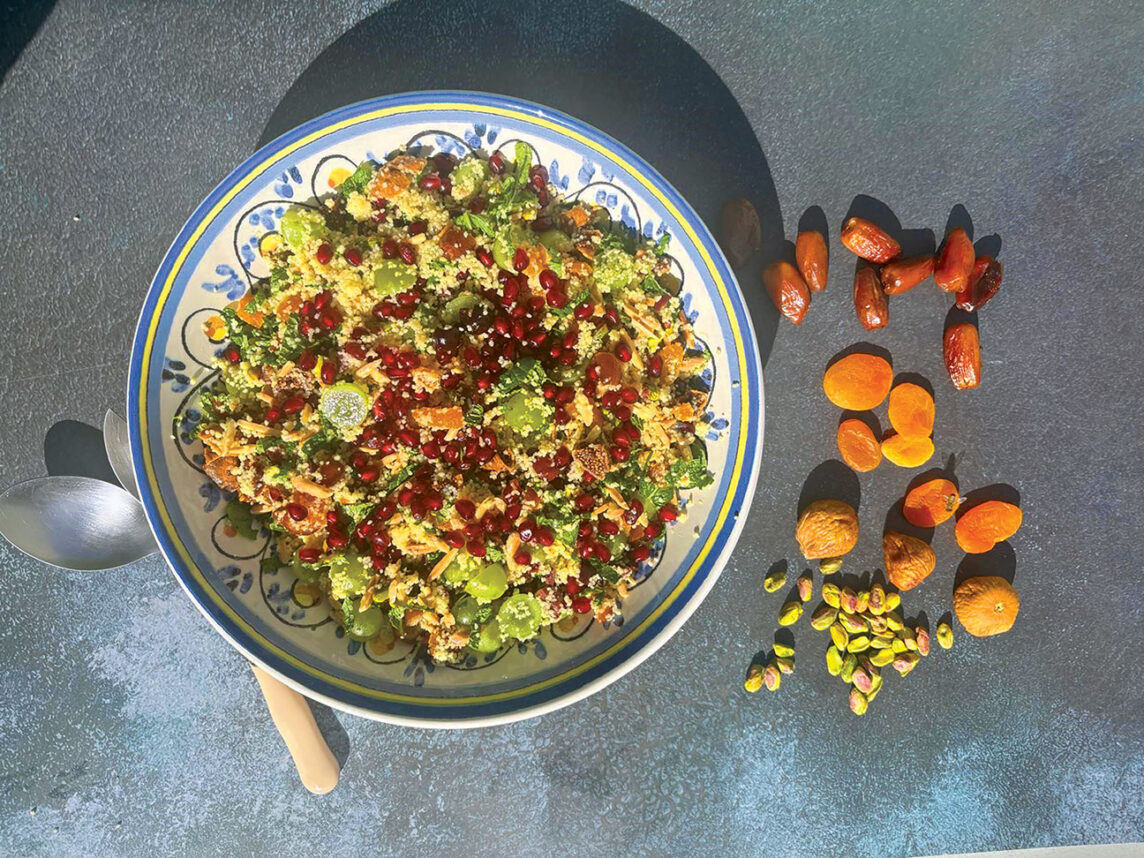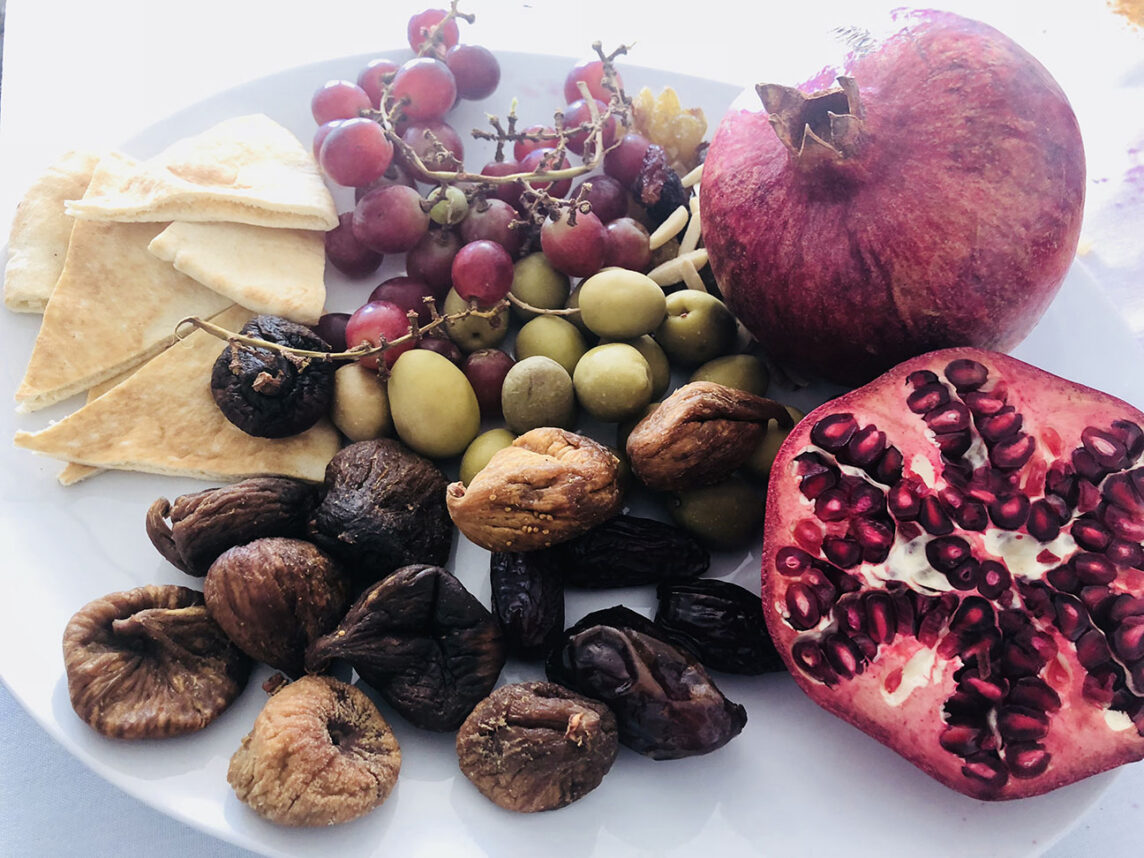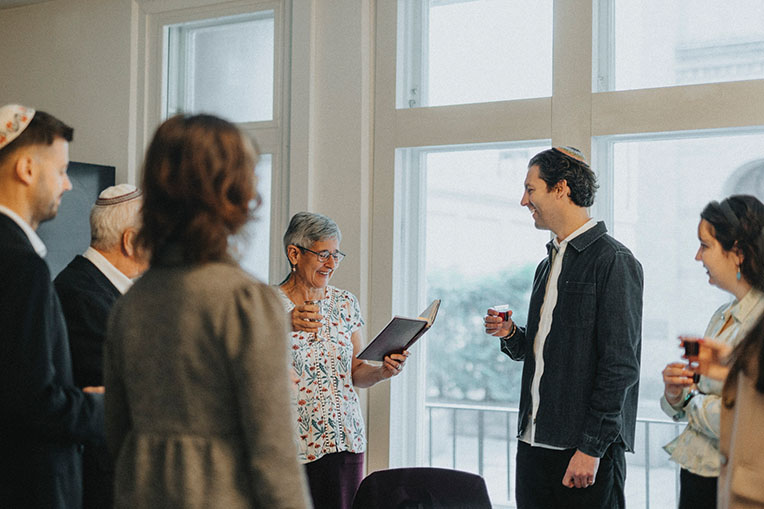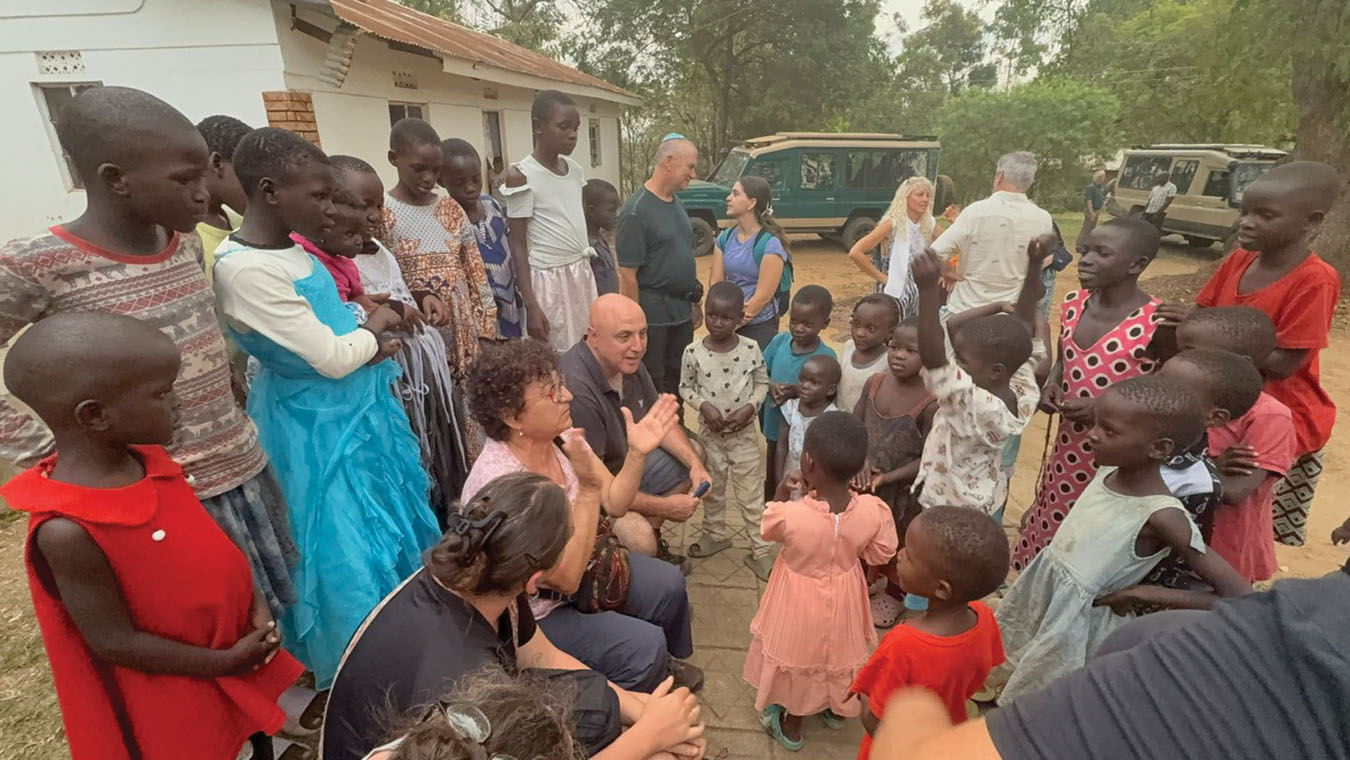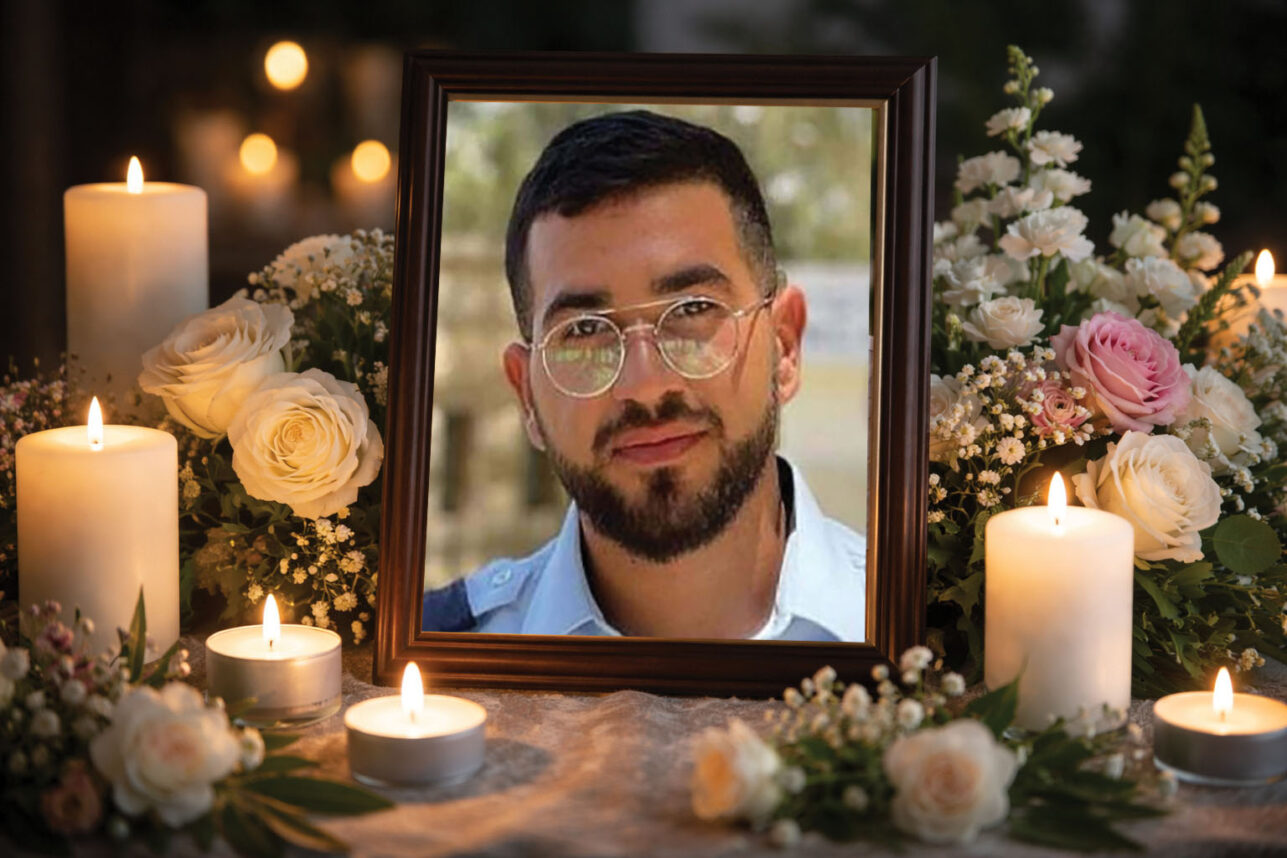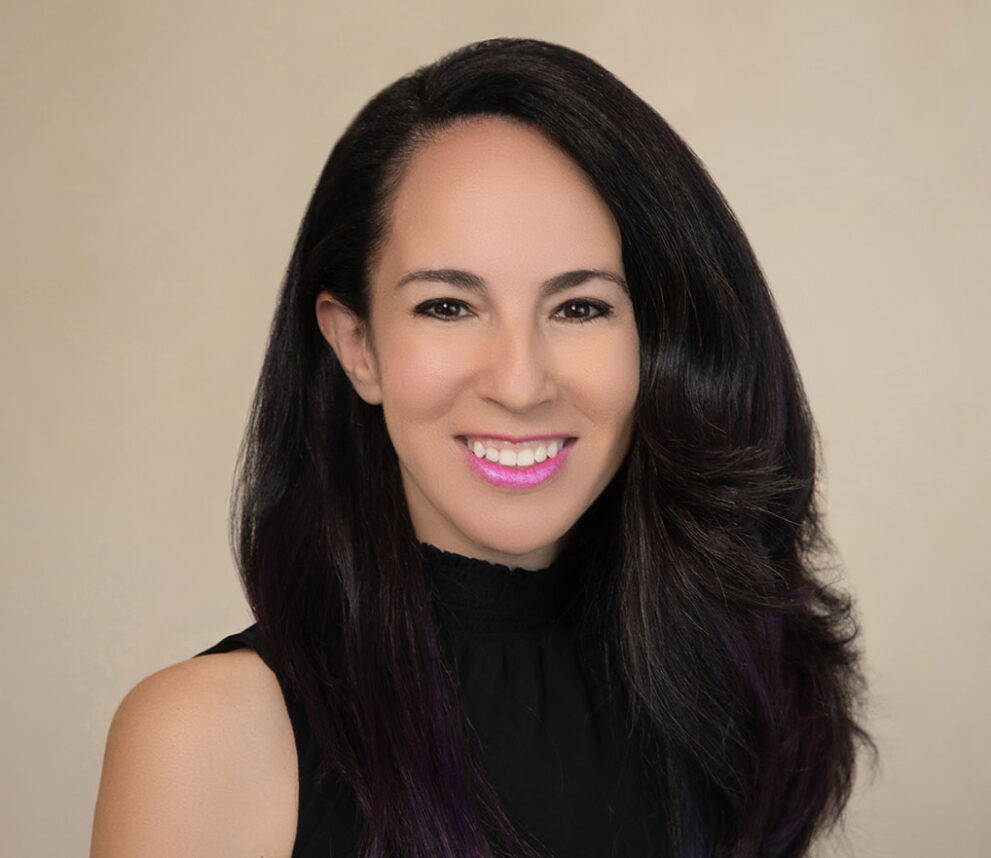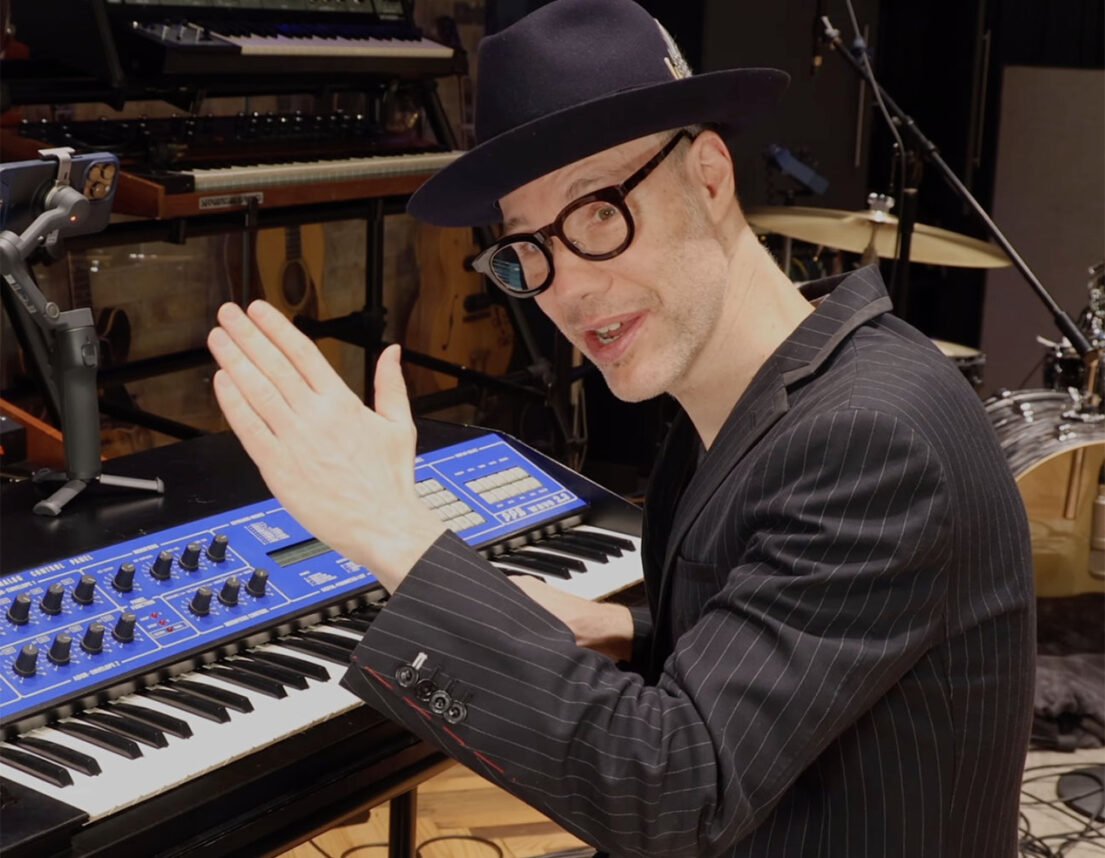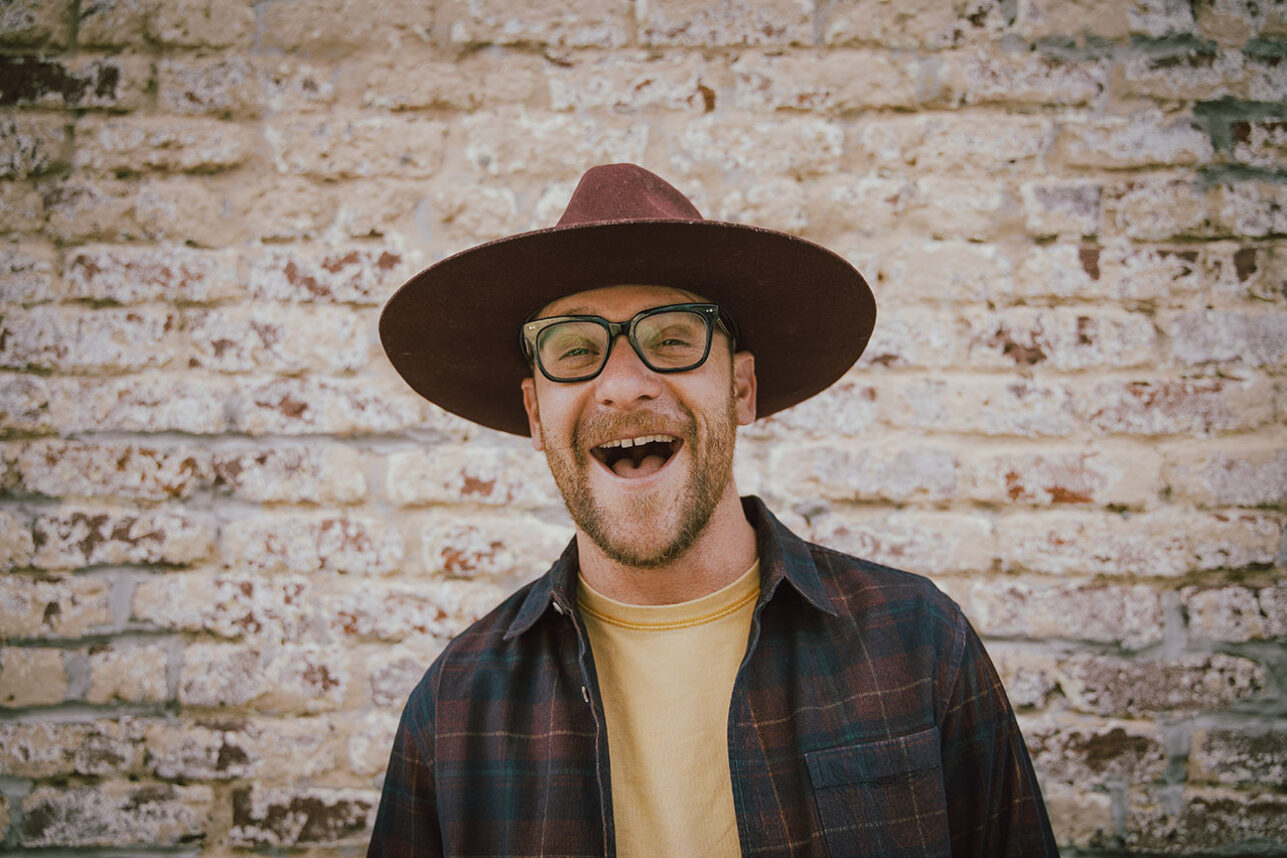
New York teen Steven Hoffen is literally Growing Peace, which is the name of his company, launched in 2021. The organization installs hydroponic systems for communities in need so they can grow their own fresh produce.
“Hydroponics is … this new method of agriculture, where plants are given the nutrients that they need to survive and to grow through nutrient rich water rather than through soil,” the 16-year-old Hoffen, a junior at Riverdale Country School, told The Journal.
Hydroponics, he explained, has many benefits in terms of sustainability that do not pertain to traditional farming: it uses 80-to-90% less water, takes up less space and doesn’t use pesticides or chemicals.
Hoffen said he believes that food, especially in Israel, has the capacity to create peace and collaboration. It’s a human necessity, yet so many people are food insecure throughout the world.
“Once I learned about hydroponics, I was so captivated by the technology and by its ability to produce food so efficiently and sustainably that I wanted to take advantage of what I’d learned,” he said.
The wheels were set in motion in the summer of 2019. On a trip to Israel, Hoffen visited a non-profit organization called Sindyanna of Galilee, where Arab and Jewish women work together.
“They try to create peace between Jewish and Arab communities in Israel by engaging women from each group in different sorts of activities, hoping that they would collaborate with one another and find common ground,” Hoffen said.
The following summer, Hoffen learned about Sindyanna’s hydroponics project, where they install systems in the homes of Jewish and Arab women. Their efforts are supported by an online platform, where residents of the two communities can connect, as well as share tips and photos.
Hoffen created a film, “Growing Peace in the Middle East,” about Sindyanna’s hydroponics project. This led to him creating Growing Peace Inc.
“Learning about the way that Sindyanna was using hydroponics and growing produce to help people [is] what inspired me to think I could potentially do the same in my own community ,” he said.
Hoffen has since installed seven hydroponic systems: one at a food pantry in Tel Aviv, through a partnership with Volcani International and LivinGreen and the rest in the New York City area.
After criminal justice reform advocate Dr. Topeka K. Sam spoke at an assembly at his school, Hoffen looked for a way to collaborate with her.
“What she does and her organization does is try and help women coming out of incarceration find jobs, get education,” Hoffen said. “I was inspired by her mission … so that’s [when] I started installing [hydroponic towers] in New York.”
Growing Peace has systems in Hope House in the Bronx, Edgecombe Residential Treatment Facility, Queensboro Correctional Facility and more. Each tower yields a bounty of five-to-10 pounds of nutritious, organic produce every month.
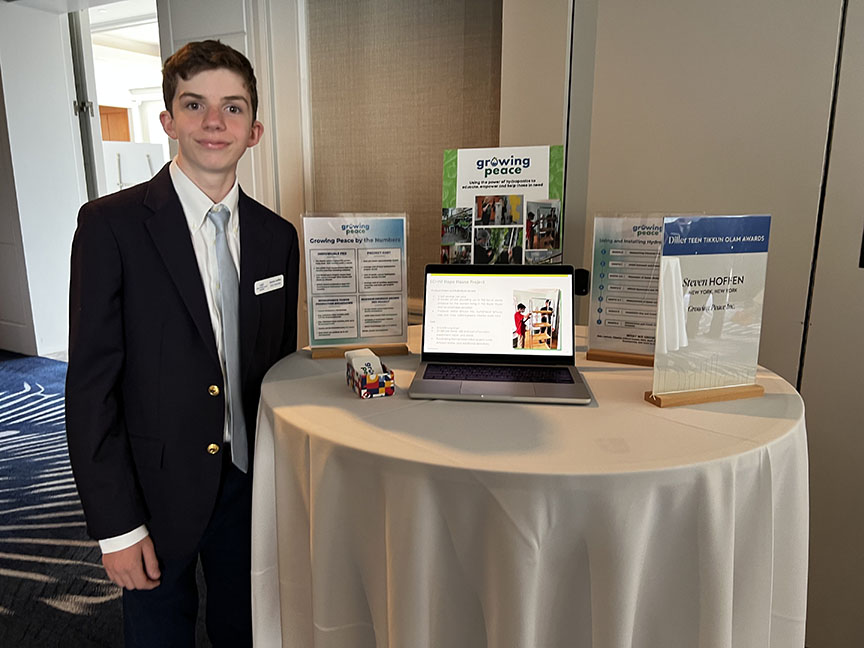
“Over the past three years, I’ve been volunteering during the school year each week at one or two of them,” he said. “I do love getting on the ground and helping out to maintain the hydroponic systems, because getting that hands-on experience is what’s really fun to me.”
Hoffen is passionate about hydroponics specifically, and generally sustainability, agriculture and food insecurity.
“I really want to continue installing hydroponic systems wherever I can, potentially branching out to other states or potentially other countries,” he said
When asked where his drive of food and giving comes from, Hoffen explained that it connects to the values of Judaism and Tikkun Olam.
“Growing Peace to me is really about trying to give back to the world, to my community and trying to help it out and make the world a better place,” he said. “Whatever little I can do is going to be helpful.”
You don’t need to start a big project to make a difference.
“If you’re not interested in pursuing something that’s super large … you might want to try and help out other people who do have their own initiatives and who are helping people,” he said. “Or you can just do something more local, donate to your food pantry, give to charity, tzedakah, that sort of thing.”
He added, “Whatever you can do and whatever you’re capable of, if it seems like it’s the right thing to do, it probably is.”
However, if you do want to start your own initiative, Hoffen said the first step is to first find out what you’re really passionate about.
“That is what you’re going to work the hardest to achieve … and that’s where you’re going to inevitably make the most impact,” Hoffen said.
Learn more at GrowingPeaceInc.org.
For the full conversation, listen to the podcast:
Debra Eckerling is a writer for the Jewish Journal and the host of “Taste Buds with Deb.” Subscribe on YouTube or your favorite podcast platform. Email Debra: tastebuds@jewishjournal.com.










